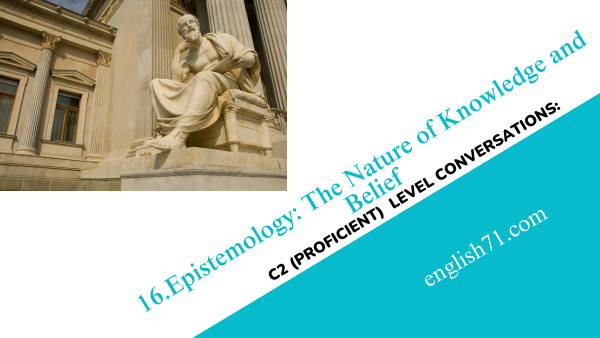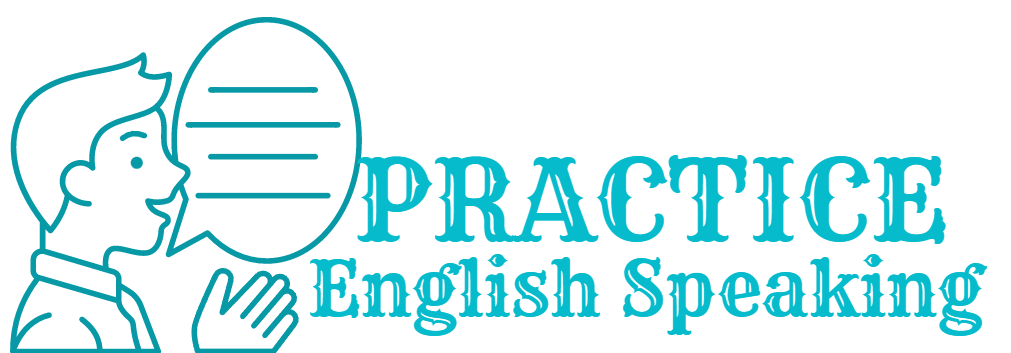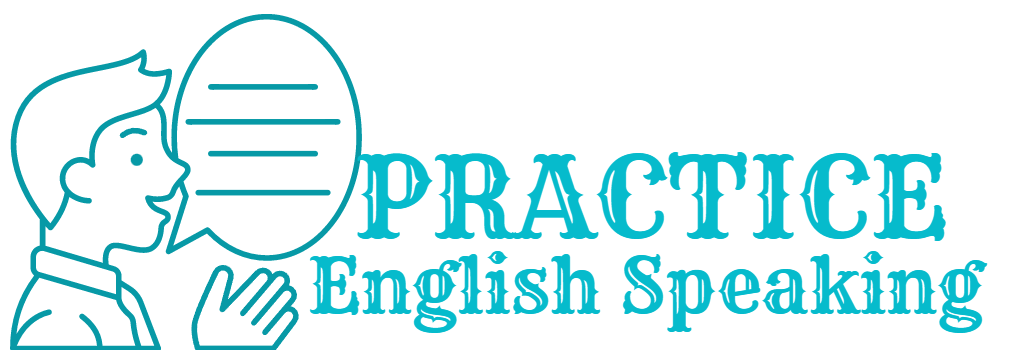C2 (Proficient) level Conversations: (16)Epistemology: The Nature of Knowledge and Belief

Max: Hey Ben, have you ever delved into the realm of epistemology? It’s a fascinating field that explores the nature of knowledge and belief.
Ben: Absolutely, Max! Epistemology raises some profound questions about what we can truly know and how we come to acquire knowledge.
Max: Precisely! One of the fundamental debates in epistemology is between empiricism and rationalism. Do you lean towards one of these perspectives?
Ben: Hmm, I tend to favor rationalism. I believe that reason and innate ideas are the primary sources of knowledge. What about you, Max?
Max: Interesting! I’m more inclined towards empiricism. I think that knowledge is derived from sensory experiences and empirical evidence. Science, for instance, relies heavily on observation and experimentation.
Ben: That’s a valid point. But don’t you think there are certain truths that can be known independently of experience? Rationalists argue that some knowledge is innate and doesn’t rely on sensory input.
Max: I see your point. However, I believe that our understanding of the world is shaped by our experiences. Our senses provide us with direct access to reality, allowing us to form beliefs based on evidence.
Ben: Fair enough. But what about skepticism? It challenges our ability to know anything with certainty. Do you think skepticism poses a significant challenge to our quest for knowledge?
Max: Absolutely. Skepticism encourages us to question our beliefs and scrutinize the foundations of our knowledge. While it can be unsettling, I think it’s essential for intellectual honesty and critical thinking.
Ben: Agreed. It’s crucial to subject our beliefs to rigorous scrutiny to ensure they’re justified. Speaking of justification, what do you think constitutes justified true belief, the classical definition of knowledge?
Max: That’s a complex question. Justified true belief suggests that knowledge requires more than mere true belief; it must also be justified by evidence or reasoning. However, philosophers have debated whether this definition is sufficient to capture the complexities of knowledge.
Ben: It’s fascinating how epistemology delves into the nuances of knowledge and belief. Our conversation has certainly sparked some intriguing questions to ponder.
Max: Absolutely! Epistemology invites us to explore the foundations of our understanding and grapple with the mysteries of knowledge. It’s a journey of intellectual discovery that never fails to captivate the curious mind.
Ben: Couldn’t agree more, Max. Thanks for this thought-provoking discussion. It’s always enriching to delve into philosophical inquiries with a fellow thinker like you.
Max: Likewise, Ben. Let’s continue our exploration of epistemology and unravel the mysteries of knowledge together.



Summary:
Max and Ben engage in a deep conversation about epistemology, the branch of philosophy concerned with the nature of knowledge and belief. They explore fundamental questions such as the debate between empiricism and rationalism, the challenge of skepticism, and the classical definition of knowledge as justified true belief. Max leans towards empiricism, emphasizing the role of sensory experience in acquiring knowledge, while Ben favors rationalism, highlighting the importance of reason and innate ideas. Despite their differing perspectives, they both appreciate the importance of skepticism in critical thinking and the value of exploring the complexities of knowledge. Overall, their discussion showcases their intellectual curiosity and their willingness to grapple with profound philosophical questions.

